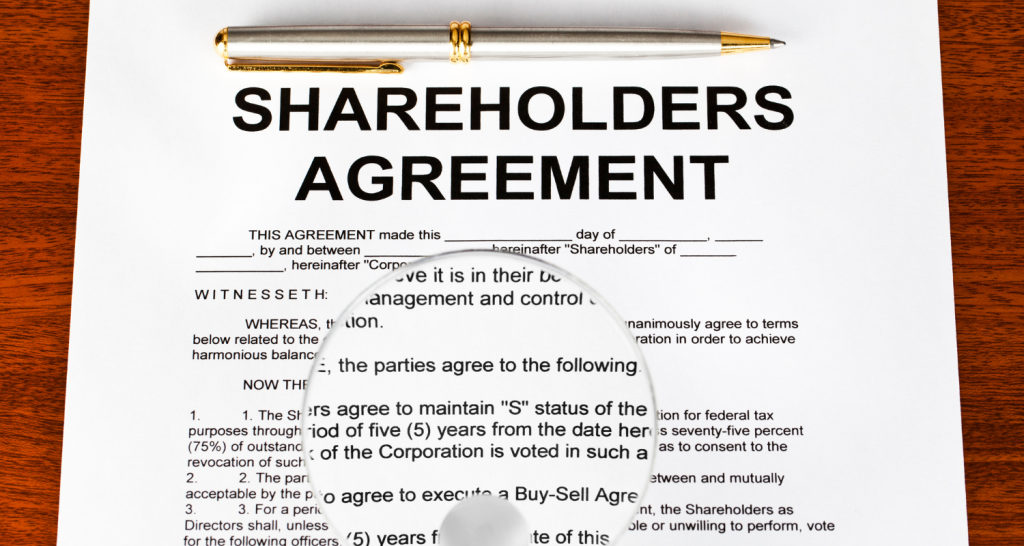
Shareholder Disputes – The Complete Guide
Table of Contents:
- What is a Shareholder Dispute?
- What Are the Most Frequently Occurring Types of Shareholder Disputes?
- How to Recognize the Signs of a Shareholder Conflict
- How to Resolve Disputes Between Common Shareholders
Owning stock in a corporation may be complicated, even more so when many persons are involved. With so many individuals involved in business decisions, conflicts are a natural part of the process.
What is a Shareholder Dispute?
Conflicts between shareholders may occur for a variety of reasons. Typically, they begin with a conflict between minority owners and majority shareholders, who have little voice in the business’s day-to-day operations. Typically, disputes arise about how the business is handled, a strained relationship between majority and minority shareholders, or violations of directors’ obligations.
What Are the Most Frequently Occurring Types of Shareholder Disputes?
- Violation of the Association’s Articles of Association or Shareholders Agreement
The articles of association must be provided when the business is registered, and the shareholder agreement is a confidential document outlining the organization’s operations. Both the articles of organization and a shareholder agreement include provisions outlining the following:
- The stockholders’ rights and duties;
- Regulating share sales;
- Emphasizing the rules governing how the business will be conducted, particularly how significant decisions will be made;
- Additionally, providing certain safeguards for minority shareholders.
- Breach of Directors’ Responsibilities
Typically, directors have responsibility for the business’s day-to-day operations, which includes making significant financial decisions and entering into contracts. According to the Companies Act 2006, a director of a business bears the following obligations to the firm:
- To behave within one’s authority
- To contribute to the company’s success
- To make autonomous judgments
- To exert appropriate care, attention, and skill
- To keep conflicts of interest at bay
- To abstain from receiving advantages from other parties
- To disclose an interest in a transaction or agreement that is being considered
- Disagreements Regarding the Direction of the Company
One of the most frequent reasons for shareholder conflict is disagreement about the company’s management and general direction. If these differences cannot be addressed via conventional means of dialogue, they may escalate into formal disputes.
- Shareholders are excluded from Board Meetings
It is critical that all shareholders know the upcoming board meetings and that a complete agenda is distributed in advance. All meetings should have accurate minutes taken and then disseminated again after the conclusion of the meeting. Failure to ensure that all board members have the chance to attend meetings, whether deliberate or unintentional, may create friction and risk conflict.
- Relationships Between Majority and Minority Shareholders are in shambles
Minority shareholders own fewer shares in the corporation and also have little influence over corporate policy. This exposes them to abuse in the hands of majority shareholders, who have greater authority. This often results in disagreements and claims by minority owners against dominant stockholders.
- Disparities in Salary
All compensation paid to directors and members of the board of directors should be reasonable and commensurate with their expertise and industry. Salary differences that occur for no cause result in conflict.
- Policies of Dividends
Additionally, dividend policy should be equitable to all owners. If it is discovered that the policy favours some shareholders over others, this might result in conflict.
- Non-Disclosure of Financial Information
One of the primary responsibilities of a company’s directors is to keep all shareholders informed about the company’s financial condition. For instance, if the business is in any manner losing money, this must be stated. Failure to share this information is very significant and will inevitably result in disagreements.
More for you
- How Hiring a Tax Lawyer Can Make Your Life Easier
- Why Small Businesses Need An Expert Attorney
- Why Hire A Business Lawyer
How to Recognize the Signs of a Shareholder Conflict
Conflict amongst shareholders is something that should be avoided at all costs. Fortunately, it is feasible to see the beginnings of a quarrel on the horizon and resolve it before it escalates. The following behaviours among shareholders may signify the onset of a possible conflict:
- Complaining about being unfairly barred from meetings
- Disruptive behaviour during meetings
- Relationships with other stockholders are strained
- Accusing other shareholders or directors of incompetence
- Taking assuming the role of spokesman for a group of shareholders
- Frequently loudly opposing the company’s direction
- Requesting meeting rescheduling to accommodate their schedule
- Using legalese to express dissatisfaction with shareholders or their actions
- Threatening to retain the services of a solicitor
How to Resolve Disputes Between Common Shareholders
While shareholder disputes are widespread, this does not indicate that they will always end in court. Thus, some measures you may take to avert a significant shareholder disagreement include the following:
- The process of establishing a shareholder agreement
- Assembling clear and adequately worded articles of association
- Assuring directors are aware of their responsibilities and giving required training
- Assuring that all board members are informed of upcoming meetings and that an agenda is distributed on time
- Obtaining legal assistance as soon as possible if you anticipate an issue
- Utilizing outside advisers to assist in resolving issues
- Consider buying out problematic stockholders



